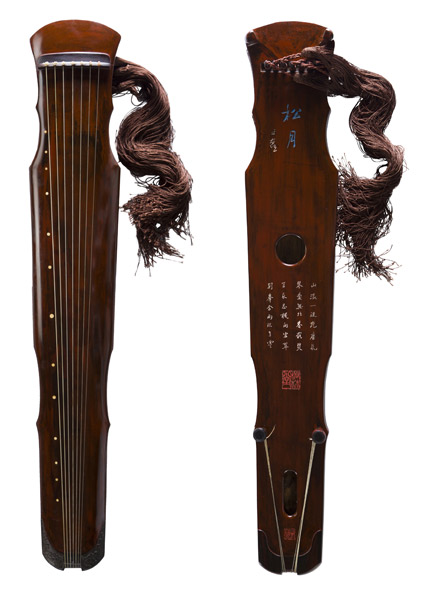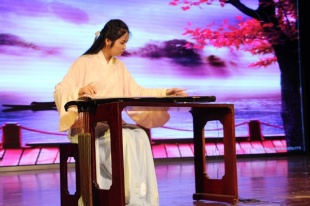The seven strings of Yangzhou


Behind the venerable instrument and its music are tales of great learning, nonconformism and even murder
Many music styles and instruments have their natural home. Just listen to a waltz being played on a violin and you can instantly be transported to a grand ballroom of Vienna. Then there's the banjo-pickin' number that has you square-dancing, American style, all the way to Nashville, Tennessee, or ukulele playing that has you lapping up the sun in Hawaii.
So if you happen to be listening to the plucking of the seven-stringed Chinese instrument the guqin, where on Earth will you take yourself to feel at home?
The answer could well be the banks of the Grand Canal in Yangzhou, Jiangsu province, a city with a population of 4.4 million that may seem unremarkable to many but which at one stage of its history is reputed to have been one of the wealthiest cities in all of China.
But right here it is cultural wealth we are concerned with, and Yangzhou's share of that, partly by virtue of the guqin, has probably been obscured by the fact that in ancient times the city was called Guangling. That name lends itself to Guangling San, or the Guangling Melody, which is said to be one of the 10 greatest classic guqin compositions.
Guangling San is associated with Ji Kang, a scholar, philosopher and musician of the Three Kingdoms era (220-280), who was widely respected for his erudition, wisdom and nonconformism.





































